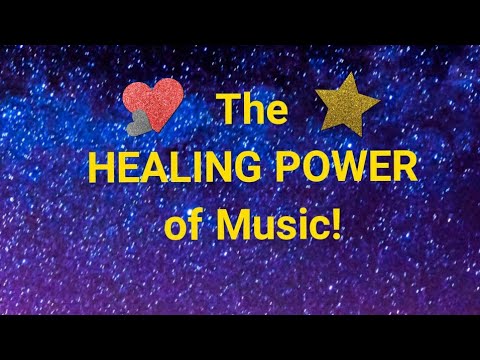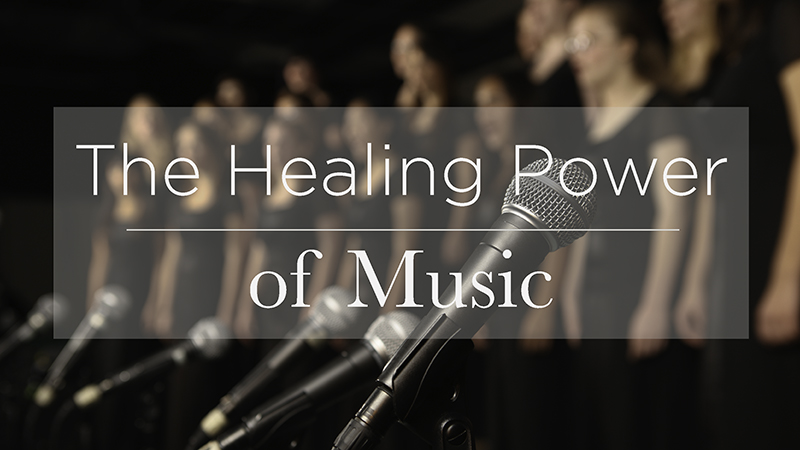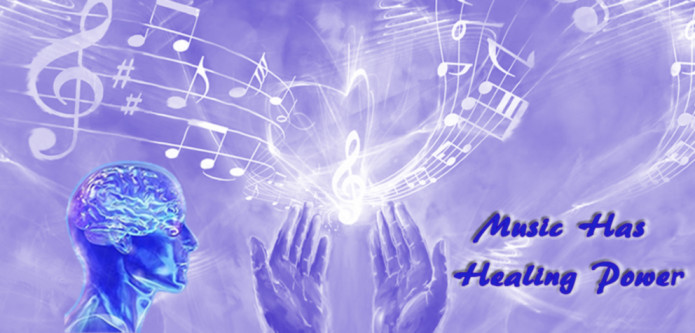Music has healing power Speech in English in 500 words

Speech Sample 1
The Healing Power of Music: A Universal Language of Harmony and Solace
Throughout the ages, music has captivated the human spirit, weaving its melodies into the fabric of our lives, stirring our emotions, and transcending the boundaries of language and culture. But music’s power extends beyond mere entertainment; it possesses an intrinsic ability to heal, to soothe our troubled minds, and rejuvenate our weary souls.
Music’s healing touch is evident in its ability to evoke a range of emotions, mirroring the ebb and flow of our own inner landscapes. When we are joyous, music amplifies our exhilaration, while in moments of sorrow, it offers solace and companionship. It becomes a vessel into which we pour our deepest feelings, finding catharsis in its expressive embrace.
The physiological effects of music further underscore its healing power. Gentle, calming melodies can lower blood pressure, reduce stress hormones, and induce relaxation, while upbeat, rhythmic music can invigorate the spirit, boost energy levels, and elevate mood.
Music therapy, a recognized field of healthcare, harnesses the therapeutic potential of music to address a wide range of physical, emotional, and cognitive challenges. From alleviating pain and anxiety in hospitalized patients to improving motor skills in individuals with neurological disorders, music therapy offers a non-invasive, complementary approach to traditional medical treatments.
In the realm of mental health, music serves as a bridge to self-expression, enabling individuals to process complex emotions and gain a deeper understanding of their inner world. It provides a safe and supportive space for exploration, fostering self-awareness, and promoting emotional healing.
Music’s healing power extends beyond the individual, fostering connection and community. Shared musical experiences, whether through group singing, dancing, or simply listening together, create bonds of shared emotion and understanding, transcending cultural and linguistic barriers.
In a world often characterized by discord and strife, music emerges as a beacon of hope, a universal language that speaks to the core of our humanity. It reminds us of our shared experiences, our capacity for empathy, and our profound need for connection and harmony.
As we navigate the complexities of life, let us embrace the healing power of music, allowing its melodies to wash over us, to soothe our troubled minds, and to remind us of the beauty and resilience of the human spirit. For in the tapestry of life’s melodies, we find solace, inspiration, and the strength to rise above our challenges, transformed by the power of music’s healing touch.

Speech Sample 2
Music has healing power Speech in English in 500 words
The Healing Symphony: Unveiling the Power of Music in Restoration *
Music, the universal language that transcends boundaries and unites souls, possesses an undeniable power to heal. It is a symphony of emotions, a tapestry of melodies, that has the ability to soothe our troubled minds, revitalize our spirits, and awaken our inner strength.
The Melodious Touch: Music as a Balm for the Soul
Music’s healing power has been recognized throughout history. Ancient civilizations employed music to treat various ailments, from physical injuries to emotional distress. Today, music therapy is a recognized field of medicine, utilizing the power of sound to promote physical, emotional, and cognitive well-being.
Music’s Therapeutic Impact: Soothing the Storms Within
The calming melodies of music can alleviate anxiety, reduce stress, and promote relaxation. Studies have shown that listening to music can lower blood pressure, slow heart rate, and ease muscle tension. Music can also serve as a powerful tool for managing pain, both physical and emotional.
Music’s Emotional Resonance: Connecting with Our Inner Selves
Music has an uncanny ability to evoke emotions, tapping into our deepest feelings and memories. Uplifting melodies can inspire joy and optimism, while poignant tunes can evoke feelings of empathy and compassion. Music can also provide a safe and cathartic space for expressing and processing difficult emotions.
Music’s Cognitive Enhancement: Stimulating the Mind’s Symphony
Music can enhance cognitive function, improving memory, attention, and focus. Studies have shown that listening to music can improve language skills, boost creativity, and promote problem-solving abilities. Music can also play a significant role in cognitive rehabilitation, aiding individuals with neurological conditions.
Harnessing Music’s Healing Power: A Symphony of Possibilities
The healing power of music extends far beyond the confines of the therapist’s office. Music can be a self-healing tool, readily accessible to anyone seeking solace and restoration. Creating music, whether through singing, playing an instrument, or simply composing, can provide a cathartic outlet for emotional expression and a sense of personal fulfillment.
Music as a Universal Healer: Embracing the Symphony of Life
Music is a gift, a universal healer that has the power to touch our lives in profound ways. It is a reminder that we are not alone, that our emotions and experiences are mirrored in the melodies that surround us. Let us embrace the healing power of music, allowing its harmonies to soothe our souls, uplift our spirits, and empower us to face life’s challenges with renewed strength and resilience.

Sample Speech 3
Music has healing power Speech in English in 500 words
The Healing Harmonies of Music: A Symphony of Wellness
Distinguished guests, ladies and gentlemen,
Music, a universal language that transcends boundaries, has long been recognized for its ability to evoke emotions, inspire creativity, and foster connection. However, its profound impact extends far beyond entertainment, as music possesses an extraordinary power to heal.
Throughout history, music has been employed as a therapeutic tool, soothing the mind, body, and soul. From ancient civilizations that used music to treat ailments to modern-day music therapy programs, the healing power of music is undeniable.
Music’s therapeutic effects stem from its ability to influence our physiology and emotions. Soothing melodies can lower blood pressure, reduce stress hormones, and alleviate anxiety. Upbeat rhythms can energize the body, boost mood, and promote a sense of well-being.
Music therapy, a specialized field, harnesses music’s therapeutic potential to address a wide range of physical, emotional, and cognitive challenges. It has proven effective in treating individuals with neurological disorders, developmental disabilities, mental health conditions, and even physical injuries.
The healing power of music lies not only in its ability to directly impact our physiology but also in its capacity to evoke emotions and provide a sense of catharsis. Music can help us process and express difficult emotions, offering solace in times of grief, loss, or trauma.
Moreover, music can foster connection and shared experiences, providing a sense of belonging and community. It has the power to unite people from diverse backgrounds, bridging cultural divides and fostering empathy.
As we navigate the complexities of modern life, music offers a refuge, a sanctuary where we can find solace, inspiration, and healing. It is a reminder of our shared humanity, our capacity for connection, and our inherent resilience.
In conclusion, music is not merely a form of entertainment; it is a powerful tool for healing, a symphony of wellness that resonates within our very being. Let us embrace the healing power of music, allowing its harmonies to soothe our souls, uplift our spirits, and guide us towards a path of greater well-being.
Thank you.

Leave a Reply